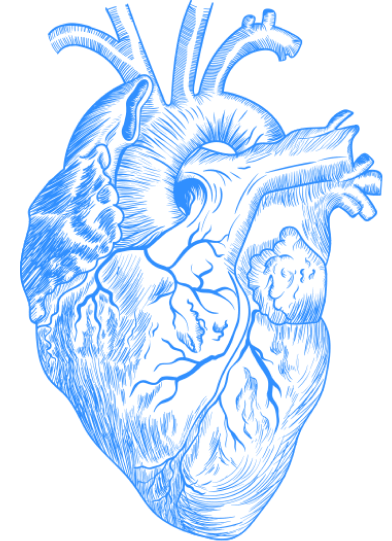
The problem of physician burnout, which in a previous post I defined as a “loss of enthusiasm for work, feelings of cynicism, and a low sense of accomplishment,” increasingly plagues the American medical profession. In an article in the Archives of Internal Medicine in 2012, researchers found that U.S. physicians suffer more burnout than other American workers. This year, a Medscape Physician Lifestyle Report found that 46 percent of all physicians who responded had burnout, “a substantial increase since the Medscape 2013 Lifestyle Report, in which burnout was reported in slightly under 40 percent of respondents.”
The consequences are deleterious: burnout negatively affects patient care and is associated with higher rates of suicidal ideation. In two earlier posts (here and here) I offered a couple of reasons why physicians become cynical. In this post, I expand on my previous entry suggesting this phenomenon is partially due to the “patient population one deals with.”
Let me start with a story.
One night, the general medical team admitted a patient with severe hyperglycemia, or high blood sugar, who had a history of IV drug abuse, alcoholism, diabetes, and hepatitis C, a viral disease that can destroy the liver. The patient drank so much hard liquor that he got dehydrated, neglected to take his insulin and went into a hyperosmolar hyperglycemic state. Patients with diabetes develop this condition when they have an infection, preceding illness, or dehydration. In diabetics, physiological stresses like these reduce insulin, a hormone which normally regulates blood sugar levels, causing unmitigated hyperglycemia. The blood becomes hyperosmolar due to the excess sugar and draws more fluid into the intravascular space leading to dehydration of cells within the body and increased excretion of water in the urine — which in turn worsens the pre-existing dehydration. As urine is excreted there is also a loss of electrolytes like sodium and potassium. Severe hypotension (low blood pressure) ensues and patients can die. Treatment involves IV fluids, insulin to correct the hyperglycemia and continuous monitoring.
After recovering overnight, our patient declared that he would start a new life and give up drinking — he was ready to make a change. As his symptoms improved and his labs normalized the medical team worked toward this goal. We arranged for follow-up appointments with a primary care physician, an infectious disease physician, and a psychiatrist. The pharmacist managed to get him insulin through a hospital-assistance program. And the social worker arranged for him to go directly to an intensive alcoholic recovery program gratis. In order to get there, he was offered transportation from the hospital. The hospital ate the cost for treating him because he was uninsured. It is both wonderful and incredible that all these resources, given freely, go towards helping a patient get back on his feet.
However, on the day of his discharge, the patient left the hospital but did not take the ride or his insulin. He drank two bottles of vodka and came back that evening in a drunken stupor and a hyperosmolar hyperglycemic state. He cursed at his nurses and the female resident who admitted him. Because he also threatened them, the hospital staff put him in restraints in his bed so he wouldn’t violently swing at those giving him medications. The medical team repeated the previous day’s actions — but two days later, the patient did the exact same thing. And for the third time, the medical team readmitted him.
 |
| Shutterstock |
This sequence of events elicits all kinds of thoughts and visceral reactions pulling us in two different directions. Surely, this patient has an illness (alcoholism) and so we need to be understanding even if we hold him responsible for his actions. And yet, the hospital gave him multiple golden opportunities to attempt to turn his life around and he declined to do so. At what point does the hospital turn him away and refuse to pay for his medical care? Would it be ethical to do so? The money can be better spent on destitute patients who will take their medications but can’t pay for them. Given the limited resources of any system, shouldn’t we at least entertain the idea?
Unfortunately, doctors face this conundrum on a weekly basis. Some diabetics refuse to take insulin; other patients refuse to give up an unhealthy diet; some don’t take their blood pressure medications. Statistics back this up: in one particular review article in the Journal of the American Pharmacists Association in 2000, 43 percent of the general population and 55 percent of the elderly population were found to be nonadherent to their medications. Approximately 125,000 deaths per year have been attributed to nonadherence to treatment for cardiovascular disease. Finally, the direct and indirect costs of nonadherence to medications are estimated to be $100 billion per year in the United States.
Physicians want patients to get better, and this is more than just a matter of prescribing medicine. They spend time talking to patients about their illnesses and treatments. They call consults from specialists who then take time to figure out a plan for a particular aspect of the patient’s ailment. Social workers arrange for affordable medical services, transportation, and institutional and governmental help. Physical therapists and occupational therapists see patients who need to regain strength. All this requires logistical tasks that aren’t always intellectually stimulating or exciting and may not even be compensated for at all.
Of course it is true that the doctor can fail the patient, but it is also true that the patient can fail the doctor. In the Medscape survey I referenced above, physicians cited “too many difficult patients” as one of the reasons for their burnout. This reaction is completely understandable. After seeing patients make poor choices again and again, a general malaise can set in. At some point, physicians ask themselves, “why should we care?” Doctors may start to go through the motions of writing notes, coming up with a plan, and making arrangements for these patients but with an emptiness of spirit. We may become embittered, both toward the patient and toward some of the annoying tasks involved in the work. A sense of futility and even detachment can follow.
Let’s not forget that the practice of medicine is a very human enterprise. Indeed, as healthcare professionals, we ought to recognize the problem of nonadherence even after putting aside the issue of limited resources. However, it is useless to just complain about uselessness — to throw our hands in the air and ask “Why even bother?” In every field there is work that does not bear fruit; entrepreneurs, for example, fail 80 percent of the time when starting a new business. Why expect a profession that relies on the Sisyphean task of changing a human being’s behavior and habits will be exempt from this fact? Patient failure, just like physician failure, is an integral part of our fallible medical system.
